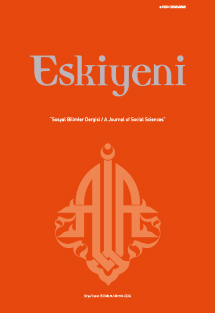İbn Halduncu Perspektiften Tarihin Yasaları: Şehirleşme ve Sekülerleşme
The Laws of History From The Perspective of Ibn Khaldun: Urbanization and Secularization
Author(s): Behçet BaturSubject(s): Middle-East Philosophy, Philosophy of History
Published by: Anadolu İlahiyat Akademisi
Keywords: Sociology; Ibn Khaldun; Laws of History; Urbanization; Secularization;
Summary/Abstract: The subject of law(s) in history has attracted the attention of some clergy, philosopher and social scientists in the past, and they have made important intellectual efforts in this field. For example, thinkers such as Augustinus, Comte, Durkheim, Hegel, Marx and Spencer have put forward various approaches to the general principles that determine the course of history. For example, according to Augustine, history is a flow that begins with God's creation of man and will end with man's salvation. According to Comte, history is subject to an intellectual evolution and human history goes through three stages (theological, metaphysical, positivist). According to Hegel, history represents the continuous development of humanity's thought on a dialectical plane. For Marx, history is a history of class wars and goes through certain stages (primitive communal, feudal, slave, capitalist) and at the end of history, a classless society (socialist) will be formed. Spencer is one of the thinkers who read history in an evolutionary line. According to him, history is subject to evolution and is constantly progressing. The common feature of all these approaches is the idea that history has laws that move towards certain goals. It is seen that Ibn Khaldun also has an approach in this direction. According to him, history has a two-dimensional structure. Linear and cyclical. This is the law of history. Likewise, according to him, history moves in a certain direction. The dynamics that determine the direction of history are urbanization and secularization. According to Ibn Khaldun, nomadism (Bedouinism), the first life form of humanity, is evolving towards urbanization (hadariism). However, and in parallel with urbanization, religion, which encompassed almost every aspect of life at the beginning of history (both in theoretical and practical areas), has undergone an institutional differentiation and narrowing and is retreating into its own sphere with the emergence of other areas of knowledge and life. This process expresses an important element (institutional/structural differentiation) that defines secularization. Therefore, it can be said that urbanization and secularization processes take place as historical laws in Ibn Khaldun's thought.
Journal: Eskiyeni
- Issue Year: 2024
- Issue No: 52
- Page Range: 101-114
- Page Count: 14
- Language: Turkish

